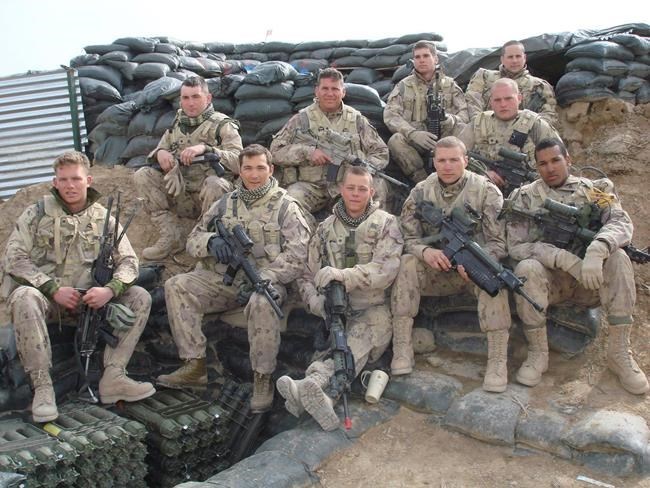PORT HAWKESBURY, N.S. — An inquiry investigating why Lionel Desmond killed three family members and himself in 2017 heard Wednesday from a health-care professional who said the former soldier required two assessments after he left a residential treatment program in 2016 — but they never happened.
Occupational therapist Julie Beauchesne, who works at Ste. Anne's hospital in Montreal, testified that the former corporal needed a functional assessment and a neuropsychological assessment. But neither of those tests was conducted during the four months before the killings in rural Nova Scotia, the inquiry heard.
Beauchesne said the tests were essential to Desmond's continuity of care, given the fact that he was still suffering from severe post-traumatic stress disorder and depression. She said Desmond was polite and motivated, but he was also struggling with anger, anxiety, irritability, poor self-regulation and bitterness over his medical discharge from the military in 2015.
"He was going through a lot," she said, adding that she saw Desmond on a daily basis during his stay at the hospital between May 30, 2016 and Aug. 15, 2016.
Desmond served as a combat soldier in Afghanistan in 2007 and was diagnosed with severe PTSD and major depression in 2011. He received more than four years of treatment before he left the Canadian Armed Forces.
Beauchesne said she determined through testing that Desmond was also dealing with a mild cognitive impairment, though it was unclear what was causing that problem.
She said the functional assessment, which would have been conducted in Desmond's home, was to determine how he was coping as a spouse, father and friend.
"The important thing was that there were some people there who could assess what was going on and offer support," she said. "The work was just beginning, in a way."
As for the neuropsychological assessment, Beauchesne said it was needed to determine what was causing Desmond's cognitive problems, which included disorganization, a short attention span and a poor memory.
"There wasn't any huge fear of his having a catastrophe," Beauchesne told the inquiry, adding that Desmond would not have been released from the hospital if he presented a risk to himself or others.
However, she said the two assessments were key to improving his mental health. "It wasn't an emergency, but it was a priority," she said.
The provincial fatality inquiry, which started last year, has heard that the former infantryman complained about three separate accidents that may have caused a possible traumatic brain injury. But the Montreal hospital did not have the expertise to assess such a condition.
The inquiry also heard that the team working with Desmond at Ste. Anne's had determined something was interfering with his progress, which led to speculation about a possible brain injury.
The team recommended the two assessments to Veterans Affairs Canada and Desmond's external treatment team at the provincial Operational Stress Injury (OSI) clinic in Fredericton.
But the inquiry has heard evidence that Desmond's case fell through the cracks over the next four months, as he completed a move from Oromocto, N.B., to a new home in Upper Big Tracadie, N.S.
"The fact that he was moving to another province made things more complex," Beauchesne said.
The inquiry has heard that the staff providing treatment to Desmond at the OSI clinic in Fredericton had reached out to the OSI clinic in Halifax, but there was some miscommunication over Desmond's file.
Between August 2016 and January 2017, Desmond's mental health seemed to get worse.
Warren Zimmer, the provincial court judge presiding over the inquiry, told Beauchesne that Desmond was complaining of worsening PTSD symptoms when he showed up at a hospital emergency room in Antigonish, N.S., on Oct. 24, 2016.
Zimmer read aloud from hospital files showing Desmond was feeling, angry, sleep-deprived, overwhelmed, depressed and paranoid when he spoke to doctors in the emergency ward. As well, he talked about angry outbursts, nightmares, a strained relationship with his wife and his inability to navigate the systems set up by Veterans Affairs Canada.
The judge asked Beauchesne if it would be accurate to describe Desmond's condition on that day as a serious degradation of his mental health. The occupational therapist agreed.
"It's a fair observation that things went downward," she said.
The judge also noted that on Dec. 2, 2016, Desmond met with Dr. Ian Slayter, the hospital's psychiatrist, who would later agree to take Desmond on as a patient, mainly because his symptoms were complex and he appeared to have "fallen through the cracks."
Zimmer said Desmond had spoken with a community therapist in Antigonish during that critical time, which was arranged by Veterans Affairs. But the inquiry has determined that he received no actual therapeutic treatment after he left Ste. Anne's.
On Jan. 3, 2017, Desmond bought a rifle in Antigonish and later shot his 31-year-old wife, their 10-year-old daughter, Aaliyah, and his 52-year-old mother, Brenda, before turning the gun on himself in their home.
This report by The Canadian Press was first published March 24, 2021.
— By Michael MacDonald in Halifax
The Canadian Press

